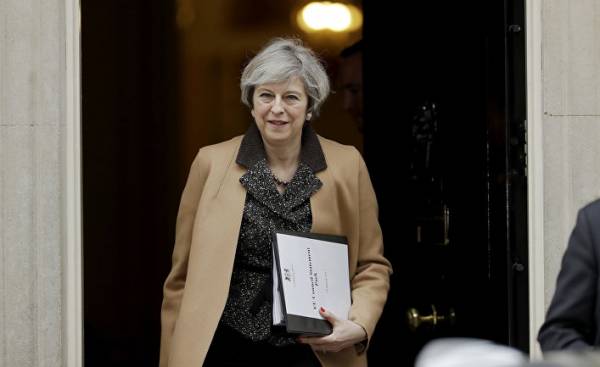
Sad but true: “divorce” process is opened. The house of Commons and the House of lords voted on Monday, March 13, with the law allowing Theresa may to begin the process of Brexia, namely the UK out of the EU. In addition etropolski publications, few people rejoicing in London the event. We all know that the difficult time begins. The separation will take time, perhaps years, as the existing relations with the EU are very close and beneficial to both parties. Absurd of course, but it is.
The vote on Monday evening on the banks of the Thames, which has witnessed many tragedies, allows the first conservative Prime Minister to act in accordance with article 50 of the Lisbon Treaty on withdrawal of a member state of the EU. Representatives of 27 countries will meet on April 6 at the summit to identify key principles for future talks with London. Now Theresa may will be easier to negotiate with Brussels, which should be completed within two years.
The vote on Monday was a mere formality. More than two thirds of the deputies oppose Brakcet, but they can’t act contrary to the results of the referendum dated 23 June 2016, when nearly 52% of Britons favoured leaving the EU. Oil poured into the fire premr Minister of Scotland Nicola Sturgeon (Nicola Sturgeon) who said the same day that it intends to hold a second referendum on Scottish independence between autumn 2018 and spring 2019.
If the UK leaves the EU, then Scotland will be ready to leave the Kingdom. The proponents of independence lost the first referendum in 2014, but nearly 60% of Scots voted against Bikita (and Northern Ireland). The results of the second Scottish referendum will have implications for talks on Brexia, as well as the results of the elections in the Netherlands and France in the coming weeks. In London and Brussels dominated by the feeling that you experience when you jump into the void.
UK and other EU member States must within two years to reach agreement on three difficult issues. The United Kingdom, before leaving the club will have to pay “a fairly significant expense” to Brussels. About three million immigrants from EU countries living in the country, and half a million Britons settled on the old continent (they received the right to accommodation, work permits, access to health care, education, etc.). And finally, today’s commercial, cultural, scientific and military-diplomatic cooperation with the EU, which London intends to maintain and develop in the future. The definition that is best suited to describe these discussions is contained in one word: nightmare.
In General, the important thing for people to leave, staying as long as possible. And the Europeans will keep the British at close range, thereby demonstrating that much more profitable to be in the club than outside it. Most likely, and most desirable, is that both parties reach the framework agreement in a timely manner, but its implementation will be carried out during the transitional period, which will take from five to ten years. This means that the British could have very long to remain in the framework of the European. As if in reality, such a prospect was not so hateful.







